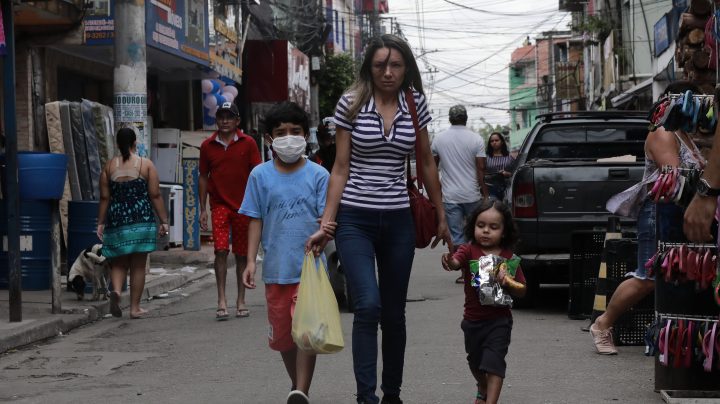
This crisis is hard on us. It’s even harder on countries that aren’t rich.
This crisis is hard on us. It’s even harder on countries that aren’t rich.

The United States government has a lot of tools in its toolbox designed to help prop the economy up through the coronavirus crisis. That includes trillions of dollars in payments to individuals, expanded unemployment benefits and forgivable loans to businesses. And the Federal Reserve has its own tools — buying up bonds and backing even more loans.
The U.S. can do all of that because it’s a rich country. But countries that aren’t rich don’t have those tools at their disposal. So their debts are piling up, and they’re struggling.
You know what money does when it’s in danger? It runs.
“We saw a dramatic, almost unprecedented retrenchment of capital that left emerging markets,” said Andrew Karolyi, professor of finance at Cornell.
Investment money has been surging out of emerging markets — developing and middle-income countries. Karolyi said in two and a half months, four times as much money left emerging markets as did in the Great Recession.
“It’s something I haven’t seen in my 30 years of watching this,” Karolyi said.
When people take their money out of a country, its currency falls in value. That means it won’t go as far, which is a problem if the country is in serious debt — like almost half of developing countries are.
“This creates essentially a pandemic Catch-22 for these developing countries,” said Stephen Kaplan, associate professor of political science at George Washington University. “Do you pay off the debt, or do you increase your spending on all kinds of essential items?”
Essential items like fighting a pandemic. And this is exactly what’s happening.
“Pretty much every emerging-market currency is down year to date,” said Win Thin, global head of currency strategy at Brown Brothers Harriman. “The worst is Brazilian real, down almost 30%, South African rand is down 20%, Mexican peso down 18% year to date.”
This hasn’t gone unnoticed. The International Monetary Fund canceled 6 months of debt payments for the 25 poorest countries, and the G-20 nations agreed to put debt on hold for others. Eric LeCompte, president of Jubilee USA — a group of religious organizations that promotes debt relief — said that’s not enough.
“The United Nations now predicts that 40 to 60 million people will move into extreme poverty because of the crisis,” LeCompte said.
One hundred and ten countries are asking the IMF for more loans, and the U.N. is taking on this issue next week.
There’s a lot happening in the world. Through it all, Marketplace is here for you.
You rely on Marketplace to break down the world’s events and tell you how it affects you in a fact-based, approachable way. We rely on your financial support to keep making that possible.
Your donation today powers the independent journalism that you rely on. For just $5/month, you can help sustain Marketplace so we can keep reporting on the things that matter to you.












